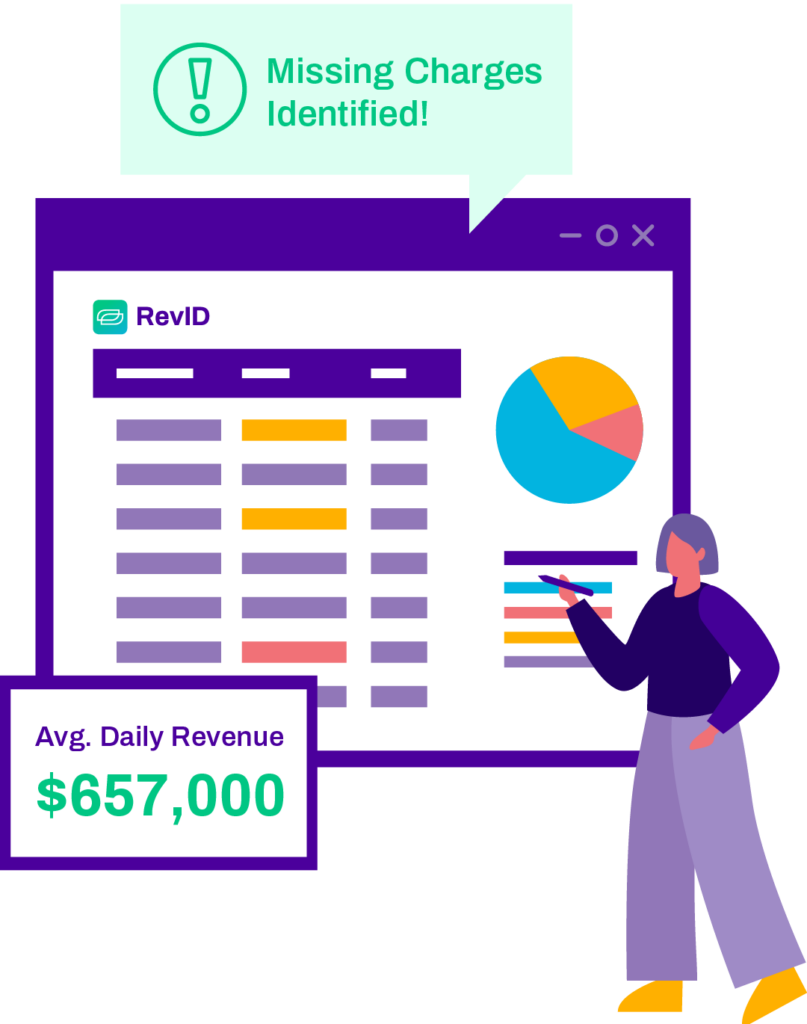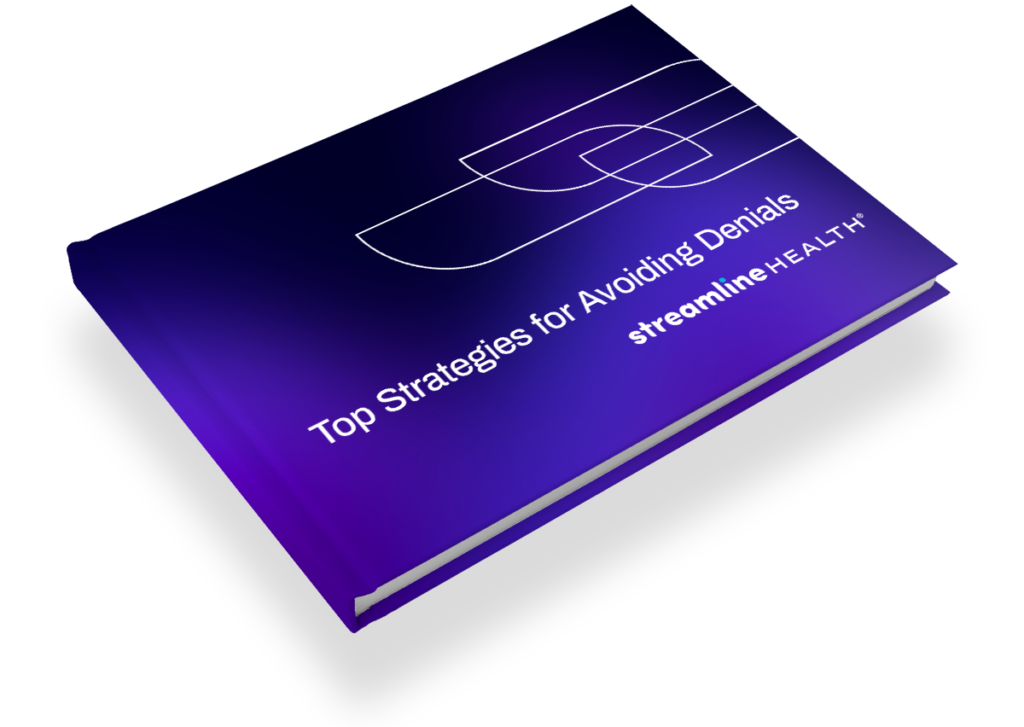In today’s ever-evolving healthcare landscape, ensuring the financial health of your organization is more important than ever. With the complexities of coding, billing, and compliance, achieving optimal revenue integrity can be challenging.
We’ve got you covered from chargemaster management to addressing common issues like missing and late charges, compliance adherence, and reducing denials. One should know the ins and outs of maintaining a healthy revenue cycle, including the importance of automation and the need for annual CPT updates. So, whether you’re a healthcare professional, administrator, or just interested in learning more about the revenue cycle in healthcare, you’re in the right place.
Discover how to prevent revenue leakage and RAC audit compliance risks, improve your workflows, and ultimately boost your organization’s bottom line. Let’s get started!
Contents
What is Revenue Integrity?
Revenue integrity is the practice of translating patient experiences to revenue in a healthcare organization and avoiding revenue leakage or compliance issues.
Once referred to as “revenue optimization,” the term “revenue integrity” is a more holistic encapsulation that also includes legal and contractual compliance. The process of ensuring revenue integrity falls within the grander scheme of your revenue cycle management efforts.
People, processes, and platforms all help establish and maintain revenue integrity. By proactively addressing the issues that impact your revenue integrity, you’ll also improve your organization’s overall financial performance!
The goal of revenue integrity, according to the National Association of Healthcare Revenue Integrity (NAHRI), “is to prevent recurrence of issues that can cause revenue leakage and/or compliance risks through effective, efficient, replicable processes and internal controls across the continuum of patient care, supported by the appropriate documentation and the application of sound financial practices that can withstand medical coding audits at any point in time.”
Think of revenue integrity as a sort of bridge – it helps connect clinical, coding, compliance efforts across your overall revenue cycle operations. Once you begin implementing certain processes and following best practices, your efforts will drive improved financial performance across the enterprise.
The charge reconciliation process is an absolute necessity because it ensures accurate charge capture at the point of care. Due to the complexity of care delivery as delivered across multiple departments and systems, charge capture is also a major source of potential revenue leakage. As such, the best practice is to ensure charge reconciliation on a daily basis.
A recent Bain report in anticipation of 2024 on healthcare IT trends found that providers are planning major investments in revenue cycle management technologies like revenue integrity and charge capture to enhance collections and streamline labor-intensive processes. The report also highlighted the need for AI and automation to demonstrate productivity gains in revenue cycle workflows without increasing clinical risk.
Streamline Health’s solutions like RevID can help healthcare organizations achieve daily charge reconciliation and prevent revenue leakage through automated charge capture and revenue integrity analysis. By using rules-based logic, these solutions identify charge errors and compliance risks for human review before claims submission. This level of automation delivers the productivity gains highlighted in the Bain report.
A common challenge for providers is that they lack a comprehensive manner to compile, assess, and validate charges at scale. Charge reconciliation is best managed at the department level, but this means staff will often have to take up to several hours per day to generate and review reports for all charges around each patient encounter. Since many organizations simply can’t comply with this requirement on a daily basis, charge inaccuracy is common, and the organization subsequently suffers from substantial revenue leakage.
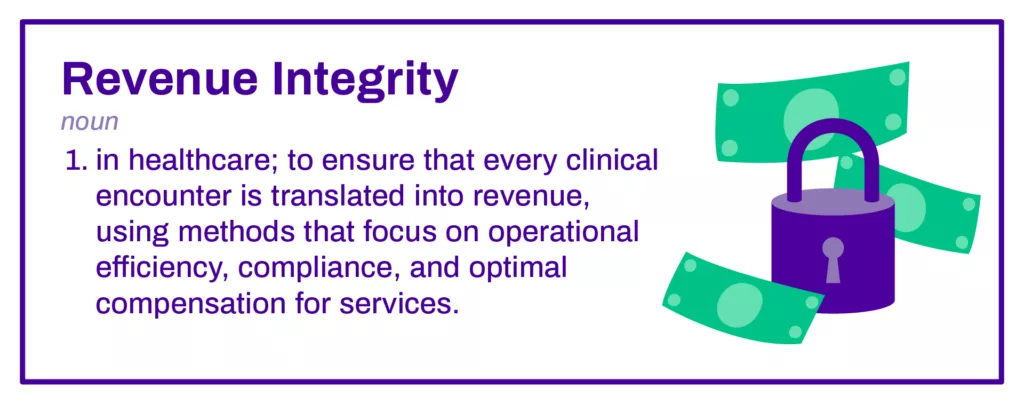
Chargemaster Management
A health system’s chargemaster (CDM) is the central program from which hospitals prices are applied and managed. The tool essentially contains the supply prices for all procedures clinicians perform, as well as diagnostics, medical devices and medications. A carefully managed chargemaster can make a difference in whether a hospital receives full reimbursement for its procedures, which is one of the primary goals of revenue integrity.
The integrity of your chargemaster depends on having a fully vetted and complete process by which prices are input and managed. Manual review and management of the chargemaster is incredibly labor-intensive and leaves room for plenty of errors and oversight. One of the best ways to manage your chargemaster is by automating your CDM through chargemaster management software and regular maintenance updates.
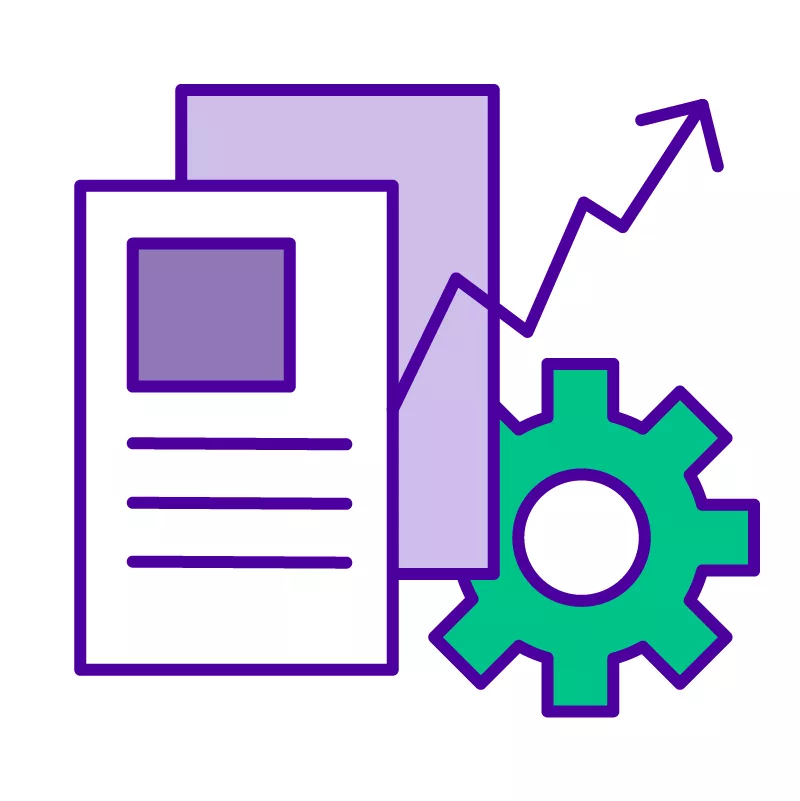
Reconcile 100% of charges daily and correct issues before submitting claims.
By ensuring optimized charge capture across all encounters, RevID prevents millions in revenue leakage while freeing up your staff to focus on more important tasks. Check out RevID below!
Revenue and Charge Reconciliation
The charge reconciliation process is an absolute necessity because it ensures accurate charge capture at the point of care. Due to the complexity of care delivery as delivered across multiple departments and systems, charge capture is also a major source of potential revenue leakage. As such, the best practice is to ensure charge reconciliation on a daily basis.
A common challenge for providers is that they lack a comprehensive manner to compile, assess and validate charges at scale. Charge reconciliation is best managed at the department level, but this means staff will often have to take up to several hours per day to generate and review reports for all charges around each patient encounter. Since many organizations simply can’t comply with this requirement on a daily basis, charge inaccuracy is common, and the organization subsequently suffers from substantial revenue leakage.
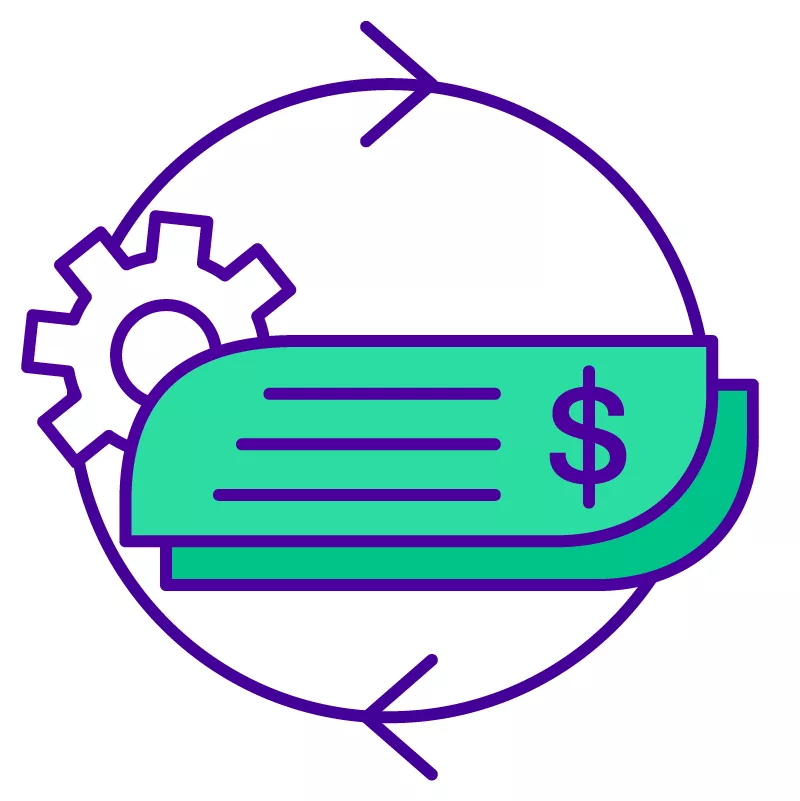
Common Issues with Revenue Integrity
Missing and Late Charges
Ensuring charge accuracy is a somewhat complex process. There are many variable—direct and indirect— that can influence the accuracy of charges for a given encounter. Pricing accuracy, as dictated by payer contracts and managed by the chargemaster, is one factor. Certain prerequisites for when a charge applies, or when it may be bundled with other charges, also must be taken into account. Any combination of factors can lead to missing and delayed charges resulting in revenue loss. One of the most significant contributors to revenue loss is charge discrepancies between clinical and billing. If charges are not being accurately managed at the department level, the hospital will lose money. Building an effective, clinically-based charging system is crucial for any hospital looking to ensure revenue integrity and optimize financial performance.

Compliance Adherence
When Medicare added hierarchical condition categories (HCCs) to assess patient risk as part of the consideration for payment, the need to be precise with coding and charge capture increased. Compliance with state and federal regulations is a must for healthcare systems. It’s critical to keep track of regulations and mandates to support price transparency, maintain compliance, and ensure an efficient, effective revenue cycle.
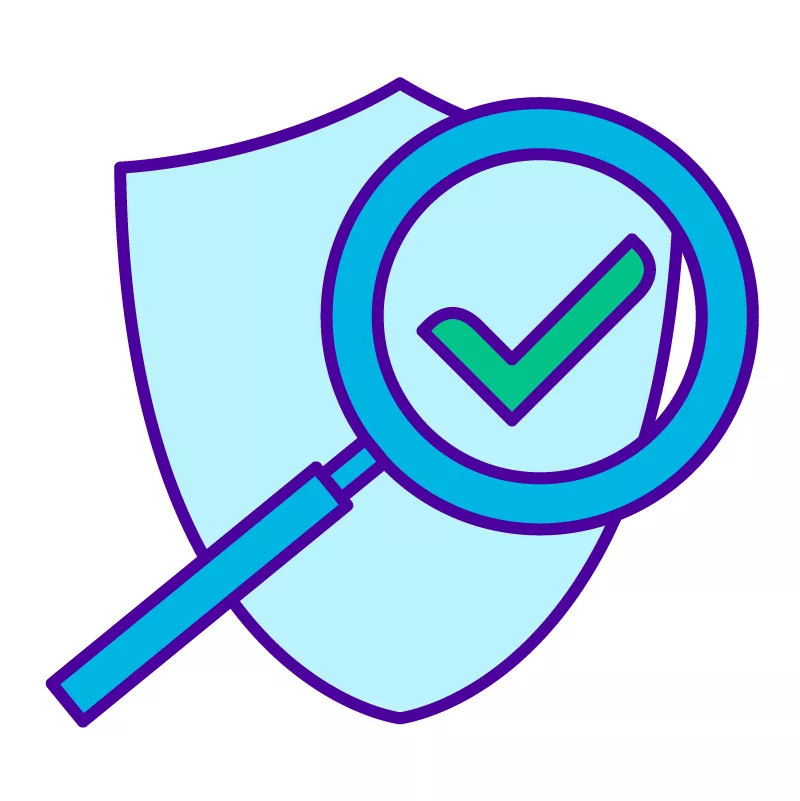
Discrepancies
Increasingly, patients are becoming responsible for their medical expenses. Yet payers are still contracted with providers for the bulk of payments for care. The volume of data exchanged around healthcare claims creates complex administrative requirements for the providers, especially with regard to managing payments from the payer, which often include partial payments for a single claim. Insurance companies deposit money directly into a healthcare organization’s bank account and then will send a record of that deposit to the organization’s medical billing office. The problem is that the deposit doesn’t always match the record, and balancing the discrepancy requires a lot of manual effort from the provider’s staff. This is where a charge capture audit can yield wonders.
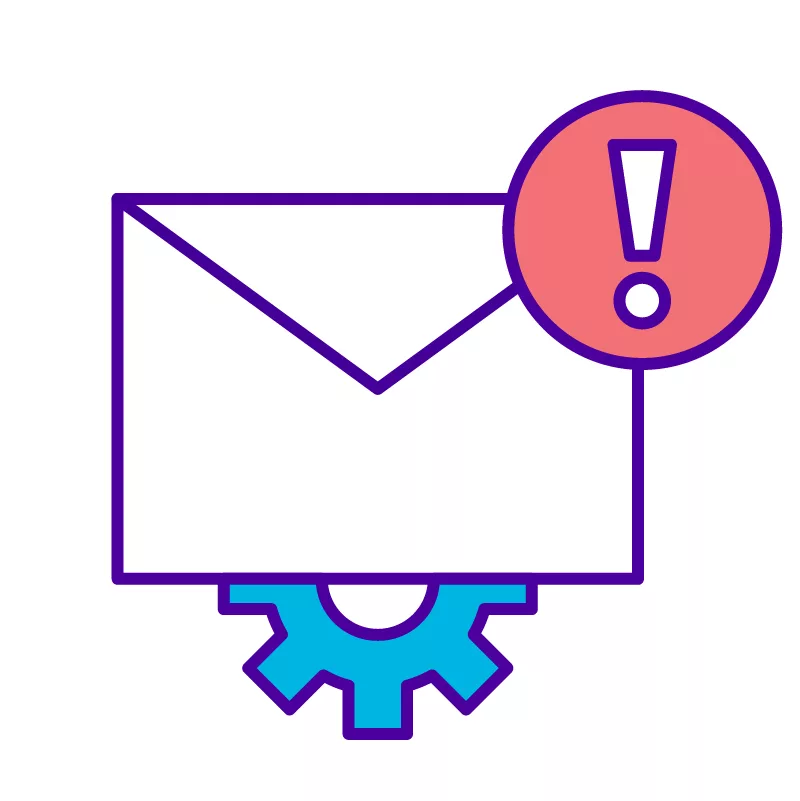
Denial Rate
Payer denials of claims can reveal process problems that occur at the coding, charging, or billing level, and can even be traced back to issues with the initial payer contracts. Implementing effective denial management strategies by analyzing claim denial patterns can identify and resolve workflow issues causing submission errors, ultimately leading to increased revenue. Keep an eye on denials percentages, as well as the dollar amounts from denied claims. Standard industry denial rates range from 5% to 10%, with 2% to 3% considered to be successful. A recent report is showing that the average hospital claim denial rate is trending upward.
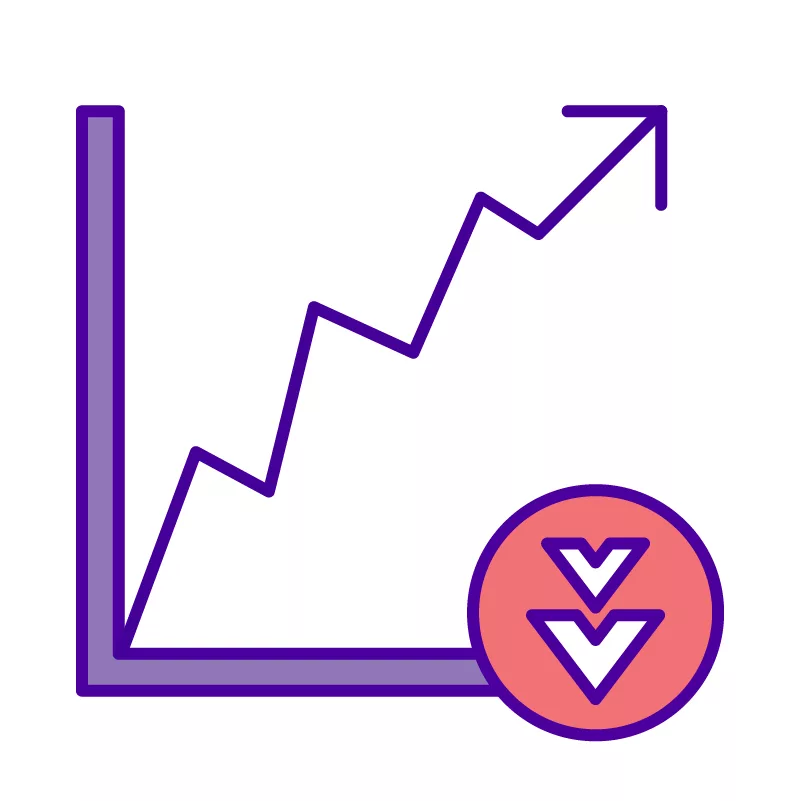
Annual CPT Updates
Current Procedural Terminology or “CPT” is the code set containing identifiers and descriptors assigned to each medical, surgical, and diagnostic service available to patients. Each year, the American Medical Association updates the code set – this enables accurate reporting, measurement, analysis, and benchmarking of medical services and procedures across the healthcare world. With the continual expansion of CPT, your system’s revenue integrity needs to import new CPT codes into existing claims and billing software. Additionally, you coding staff needs to stay current with these changes to ensure they codes they’re assigning are accurate and compliant with these updates.
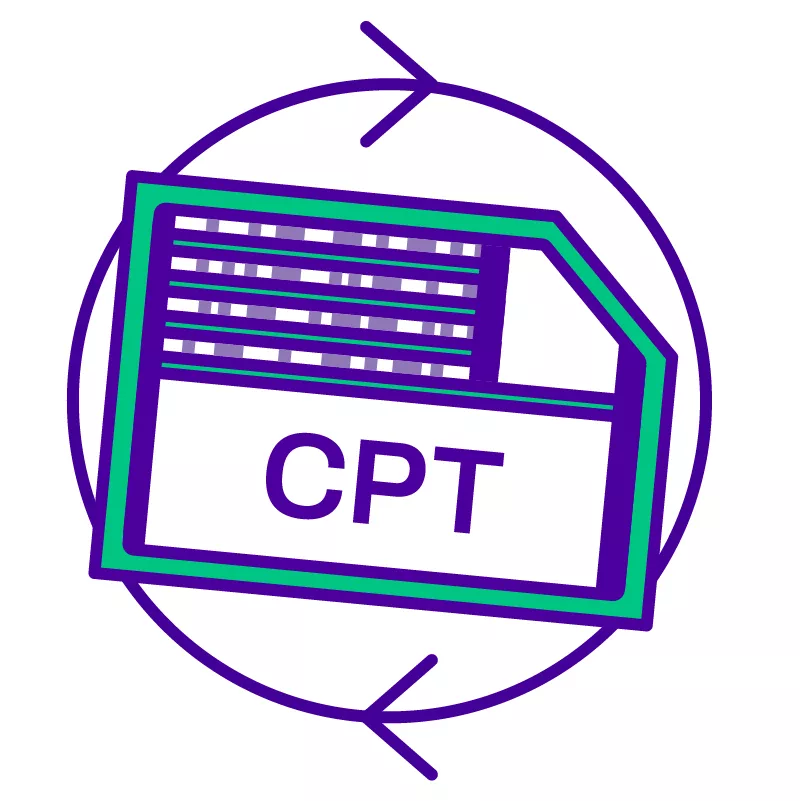
Revenue Integrity Automation
Using automated programs, a hospital system’s charges can be analyzed for accuracy and corrected as necessary before billing. This is incredibly helpful, as you want to catch errors before bills are sent out for payment. While automation can remove the daily need for manual aggregation of charges, ensuring their accuracy still relies on an element of human review. As such, most charge optimization solutions use rules-based logic to identify potential issues, then compile and present a list of questionable charges for assessment by a qualified staff member.
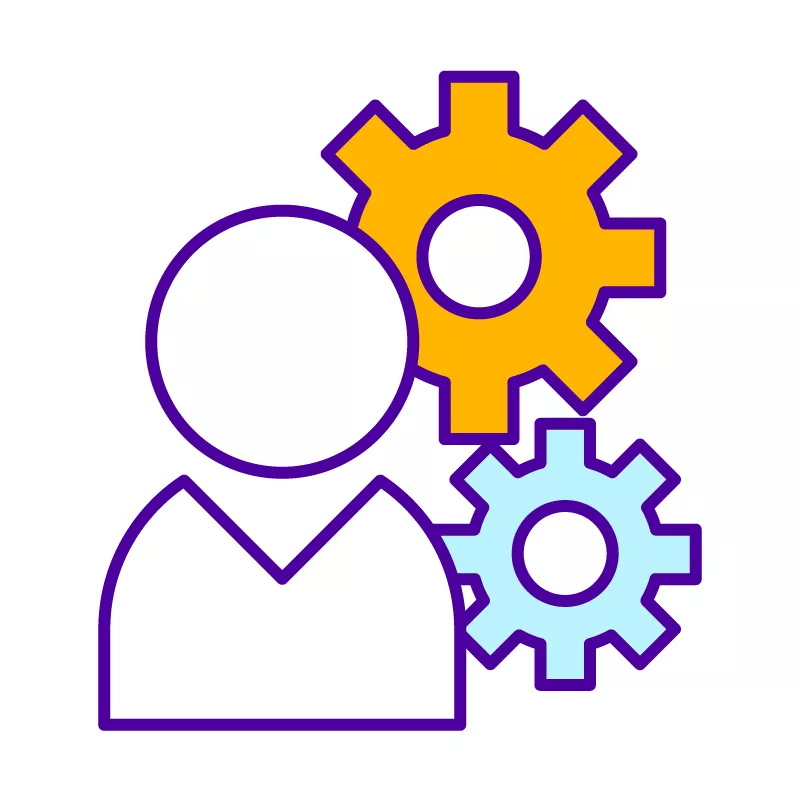
Don’t let denials continue to drain your revenue & resources.
Our eBook is packed with expert advice and best practices for minimizing denials and boosting your bottom line.
Download your copy today!
Revenue Integrity Frequently Asked Questions
It ensures accurate charge capture at the point of care, preventing revenue leakage due to charge inaccuracy.
Issues include missing/late charges, compliance adherence, discrepancies, denial rates, and annual CPT updates.
Automation analyzes hospital charges for accuracy and corrects them before billing, reducing errors and manual effort.
Discover the potential of Streamline Health’s eValuator medical billing and coding software, RevID charge capture software, and Compare chargemaster management products designed to optimize healthcare financial performance. To get a glimpse of our revenue cycle management solutions, simply sign up for a live demo. Experience the efficiency and increased revenue potential, and rest assured that we are committed to your satisfaction. You only stand to gain by exploring our cutting-edge products!

